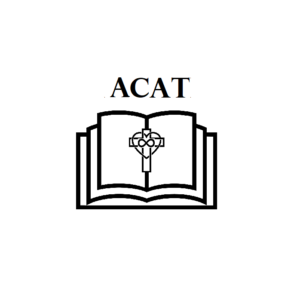|
Getting your Trinity Audio player ready...
|
The Baltimore Catechism has told us that God exists, is the creator of all life, and desires to have us here to know him, love him and serve him… and then, to be happy with him forever in the next.
If we notice, our catechism takes quite a jump from “why are we here?” to “where do we go from here?” in that last clause of the sentence. We go from knowing God, deciding we love him and choosing to follow his designs to then reaching bodily death, at which time the terms become: <we will be happy> / <with God> / <forever> / <in the next world>.
1) We will be happy
Keeping in mind the Baltimore Catechism was written with school-aged children in mind, this word “happy” should be taken at face value. We can interpret this in the most simple way, a shortcut for the sum total of things that include contentment, peace, delight, freedom from anxiety and, generally, anything we’d tag with a smile emoji… only, on a much deeper, more fulfilling level than the things that we’re used to, that last only until they fade or the next good thing comes along. This is an enduring happiness, a perpetual contentment, a rest of the soul that once was restless.
2) + with God
Does our bodily death free us from the spiritual signal-blocker that keeps us from seeing God face to face? Does bodily death transport the soul from here where God is not, to there, where God is? These things cannot be satisfactorily defined or studied, and so, the particulars of what physically constitutes the afterlife remains up for both scientific and theological discussion. It is, however, a term of our faith that we believe, in some capacity, that our soul remains alive and is able to perceive God with the certainty and clarity which our bodily existence cannot permit. We concede the “what,” knowing we do not have a definitive way to describe the “how.”
3) + forever
As theologians understand the reality of God’s creation, there is both linear, measured time here on earth and a transcendental, non-measurable state of “just being” that is so vast and deep as to defy linear tracking. That word “forever” can evoke anxiety when it is something of an unknown quality. Even though the terms already include being “happy,” there is a permanence to this “forever” that triggers a second-guessing in our human nature. We are conditioned to know where our exits are, how the escape hatch works, and how to tolerate being stuck by anticipating that things will eventually change. The key here is to remember that God’s “forever” is not static. God’s reality is one of constant creation, perpetual beginning, perfect stability and all-encompassing security. This “forever” is more like the state we find ourselves in when we finally hit our stride and want to keep going.
4) + in the next world
Ah, the afterlife. So many connotations, so many explanations, so many words. The term “heaven,” for instance, originated in the ancient belief that souls travel beyond the bonds of earth’s atmosphere, into the firmament, to join ranks with the stars. We have modernized this concept to also mean “perfect bliss” or “supreme pleasure.” But “heaven” is not the only way to refer to the afterlife. Our catechetical writers refer to “the next world.” What does this mean? In the purest sense, “world” means a specified environment containing the sum total of interactions and experiences therein. “The next world” can mean both the place itself and the way we experience it, just as in gaming there are many successive worlds in which the same player can interact in different and increasingly sophisticated ways. The takeaway here is that, once our soul is separated from our body, our experiences and interactions do not cease; rather, they continue, in a manner which we can only access once we graduate to that level.
And so, there it is. God created us, and offers us to live and use our life in this world to discover him, and consider offering our love and support of him in response. Those of us who do will experience him here and then receive the happiness he offers us with him in the world to come.
We conclude with a brief parable attempting to explain the principle like so:
If this world is a forest, and we are each a tree, the forest is that which nurtures tree growth, and no tree diminishes another’s importance. God imagines us, tree after tree, with great love, and places us in this forest to be both delightful as ourselves and to be delightful to the other trees. Once we have grown to fullness, we can see what we, and each other tree is to become. The trees who embrace being trees of the forest will thrive in the fulfillment of their design. The trees who doubt can choose not to remain, but by this choice, they may still become something useful – but they can no longer fulfill what their creator imagined they would one day be.

